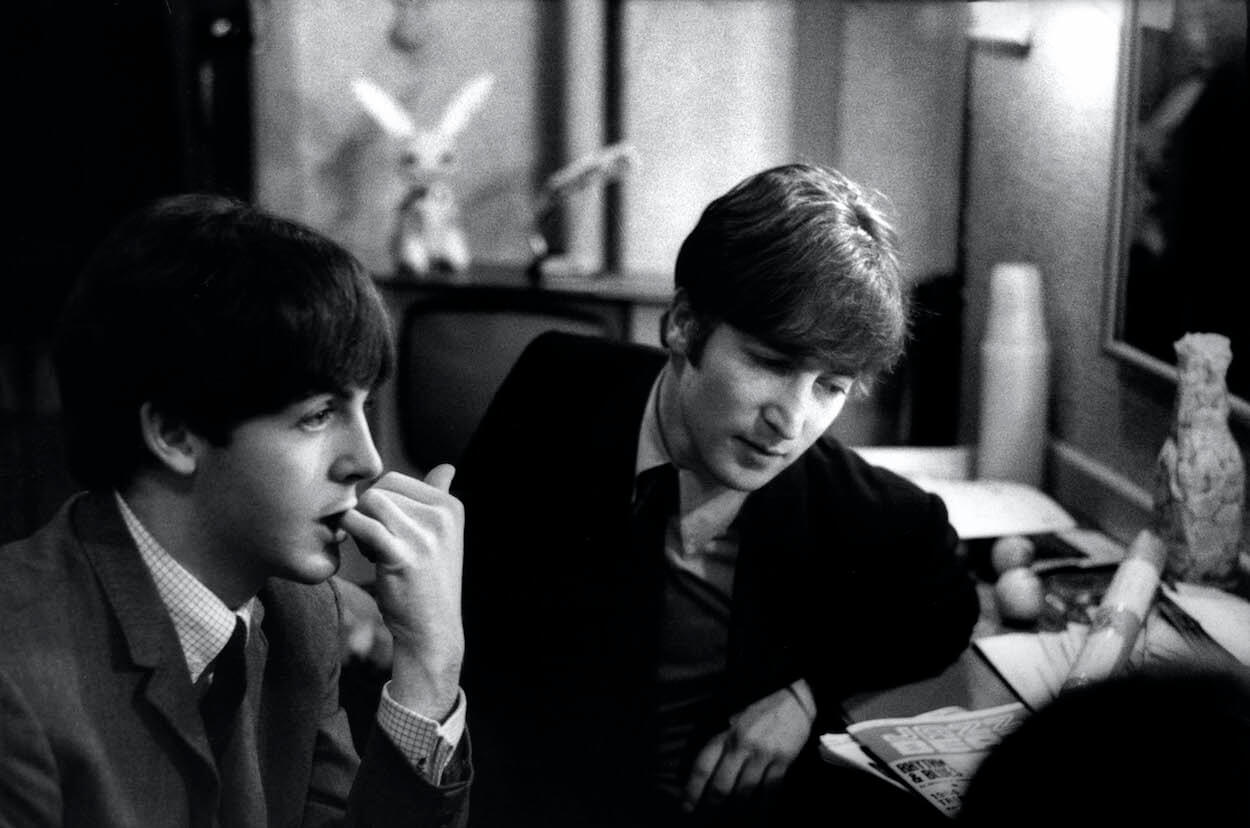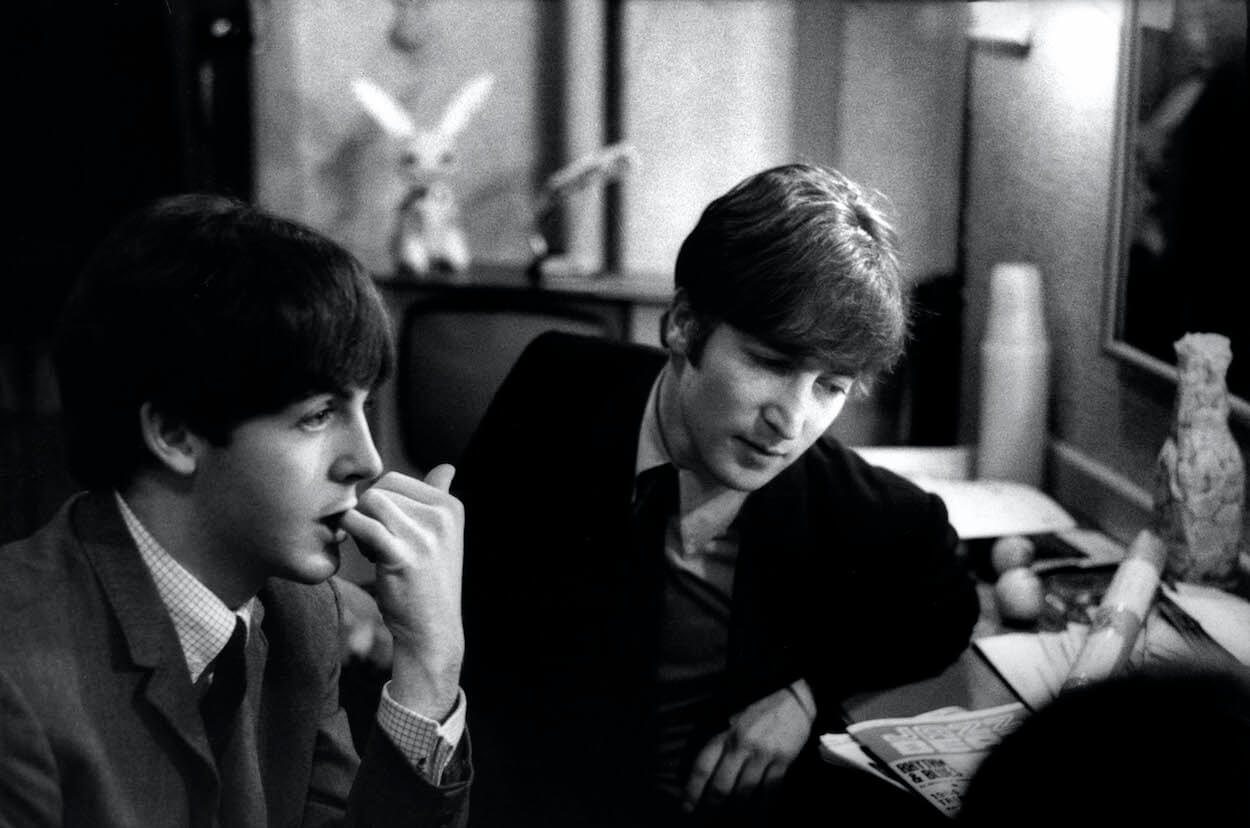
Paul McCartney’s Insight Into the Difference Between His and John Lennon’s Mothers’ Deaths Explains So Much
Paul McCartney and John Lennon had a lot in common. They were both big fans of early rock ‘n’ roll music who played multiple instruments. And they were deemed songwriting idiots who became prolific songwriters that powered The Beatles. Yet there was one major difference between their mothers’ deaths that Macca perfectly described in one quote.

Paul McCartney described a difference between his and John Lennon’s mothers’ deaths
Paul’s mother shared a heartbreaking sentiment from her deathbed before she died from breast cancer complications in 1956. He was 14. John’s mother died tragically after being hit by a car roughly two years later. Her son turned 18 a few months later.
The future Beatles were already bandmates at the time of John’s mother’s death. He didn’t hesitate to ask Paul a heart-wrenching question about how to deal with the loss. The bassist could share his experience about his mother’s death, but he couldn’t replicate his support structure. Paul inadvertently described a major difference between his and John’s mothers’ deaths in Peter Ames Carlin’s book Paul McCartney: A Life:
“I had a very nice warm family. There was a lot of security there.”
Paul McCartney
John wasn’t a feral child fending for himself, but his support network wasn’t the same as Paul’s.
Paul’s loving family contrasted John’s support structure when their moms died
Paul’s brother and father helped him return to something resembling the life he had before his mom, Mary, died.
A large network of aunts, uncles, and cousins helped. Paul had stability that helped his life return to something close to normalcy. Nothing could replace his mom, but the support aided his recovery from a devastating loss.
That was a major difference from the resources John had when his mother, Julia, died. His father, Alf, left the family when John was young and was more or less a stranger when John was 17 years old. His aunt Mimi, who more or less raised him, was loving and protective but very strict and sometimes harsh. She criticized John over how he dressed, how he talked, and how he spent his money. While his mother encouraged his passion for playing music, John’s aunt didn’t want him to be in a band.
His mother’s partner, John Dykins, had a selfish response when he and John heard about Julia’s death at the same time. One of his first thoughts was who would watch the children after John’s mother’s death.
John was suddenly motherless with an absent father, a harsh aunt as his caregiver, and a stepfather who seemingly had no interest in being part of his life. Meanwhile, Paul had a warm, loving family that provided a ton of security. They shared the same experience, but Paul’s quote highlighted a significant difference between the support he had vs. the support John had when their mothers died.
The difference between Paul’s mother’s death and John’s loss seemed to have a ripple effect years later. John nearly had to fend for himself at a pivotal age. It might be why he developed a sharp tongue and hard shell — as a defense mechanism. When he met and fell in love with Yoko Ono — a strong-willed and self-assured woman — he called her mother. Paul’s public persona was that of a smiling, happy, and confident musician, which one might be able to trace back to the web of support he had when his mother died.
The two Beatles reflected on their mothers’ tragic deaths in song
John’s music made it evident that his mother’s death haunted him for years.
Beatles’ songs, such as “Help!” with its cry for support and “Julia,” indicate John didn’t process his mother’s death quickly, if ever. The primal screams in his solo song “Mother,” where he cries’ “Mama don’t go / Daddy come home,” signal how deeply that one event affected him.
Meanwhile, Paul wrote “I’ve Lost My Little Girl” shortly after his mom’s death in one of his first attempts at songwriting. He reflected on that event in The Beatles’ hit “Yesterday.” Lines such as “Yesterday / All my troubles seemed so far away” and “Why she had to go / I don’t know, she wouldn’t say”) seem to show Paul processing his mother’s death nearly a decade later. The repeated “Mother Mary comes to me” lyrics in “Let It Be” clearly indicate who Paul was thinking about when he wrote the song.
For all they had in common, Paul McCartney and John Lennon had different levels of family support when their mothers died. Macca’s support network included relatives, but John had only a strict aunt to look out for him, and it was a huge difference between the same shared life experience of their mothers’ deaths.
For more on the entertainment world and exclusive interviews, subscribe to Showbiz Cheat Sheet’s YouTube channel.


